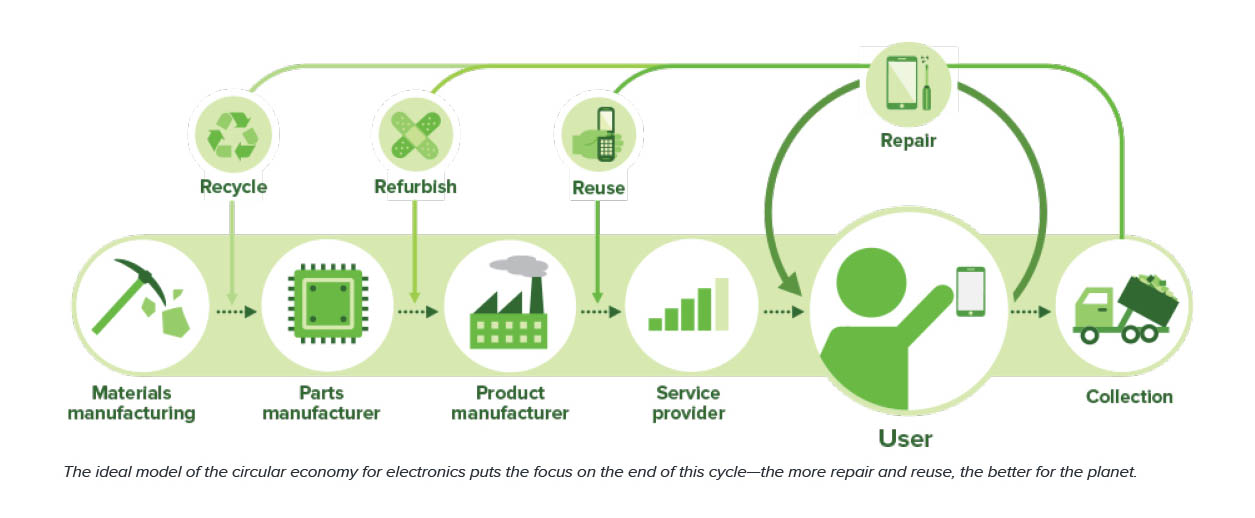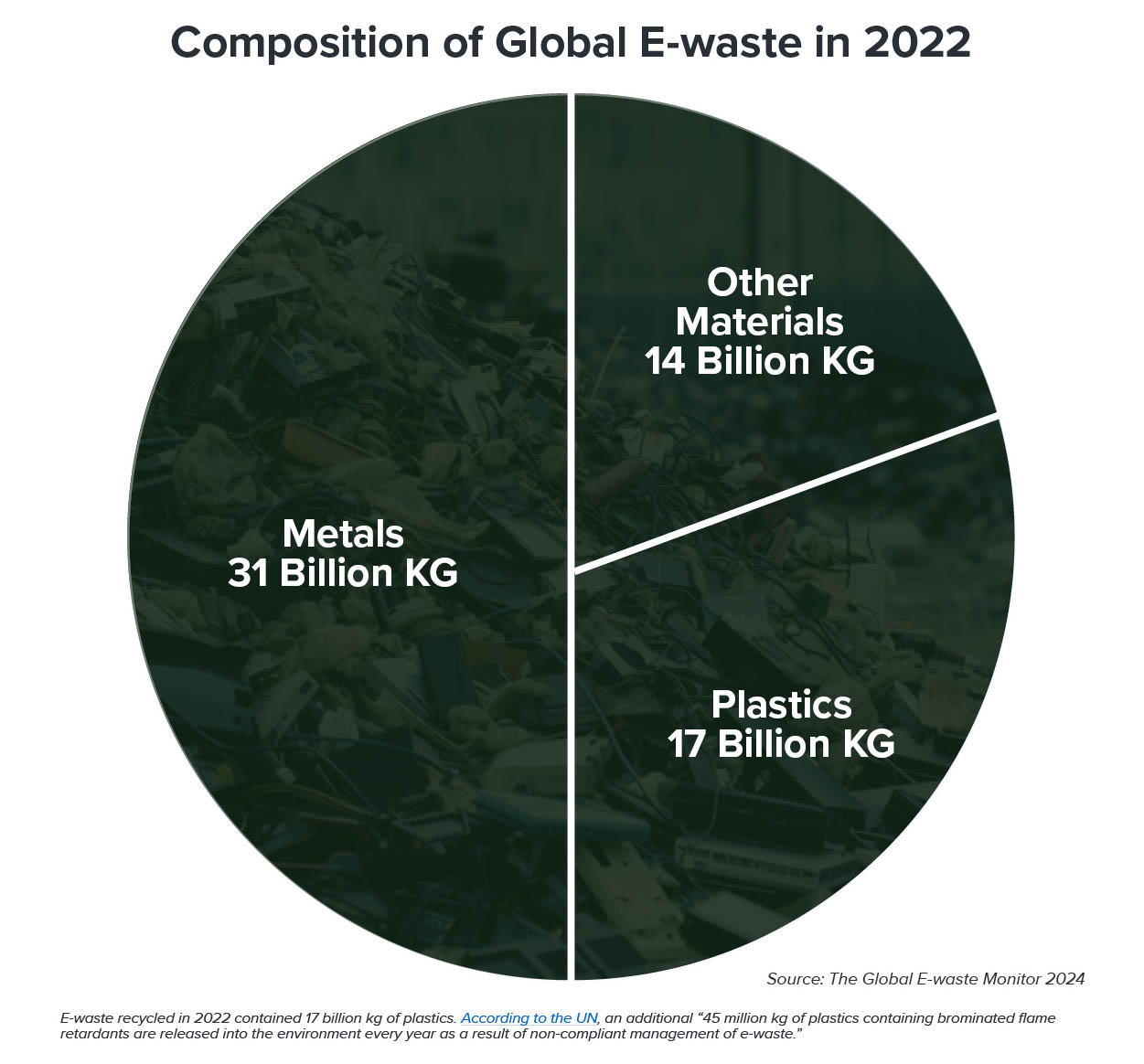Despite large numbers of corporate commitments and regulatory targets around phasing out plastics, a new report (PDF) says that the “circular economy” has made little progress over the past decade to make plastic reduction targets a reality. Global consumption of materials continues to grow, despite overtures to “circularity,” with e-waste being an additional source of concern.

While some solutions listed include “aligned value chains” and partnerships, the authors of the report emphasize the need for governmental action—including the need for the successful negotiation and introduction of the United Nations Plastic Treaty, which aims to end plastic pollution but has been a fraught process to get international buy-in. That said, in November 2024, governments will come together in Busan, Republic of Korea, for the fifth and last round of negotiations for a global treaty to end plastic pollution, aiming to begin making progress on cutting global plastics consumption.
Additionally, the Biden Administration recently released a government-wide strategy to target plastic production by coordinating with “state, local, Tribal, and Territorial governments, local communities, the private sector, and other stakeholders to address the scale and breadth of the plastic pollution challenge.” Included in this plan is the development of standards to promote recyclability and reuse, yet repair is seldom mentioned.

Governments are brushing over repair in these conversations likely due to the fact that packaging and food production are the chief producers of plastic waste, but that doesn’t mean repair shouldn’t be part of the larger conversation. But plastics make up roughly 20% of the 50 million tonnes of e-waste produced each year, which projections show doubling to 110m tonnes by 2050. As part of making electronic goods less plastic-intensive, solutions such as designing phones for recyclability and using recycled plastic when manufacturing phones would cut down on the impact electronics have on plastics more broadly. Much like right-to-repair, in the end solving plastic pollution will need strong government actions, global cooperation, and changes in how we make and use products.
This article content was originally published on the iFixit blog at: https://www.ifixit.com/News/98018/corporate-commitments-to-circularity-fall-short